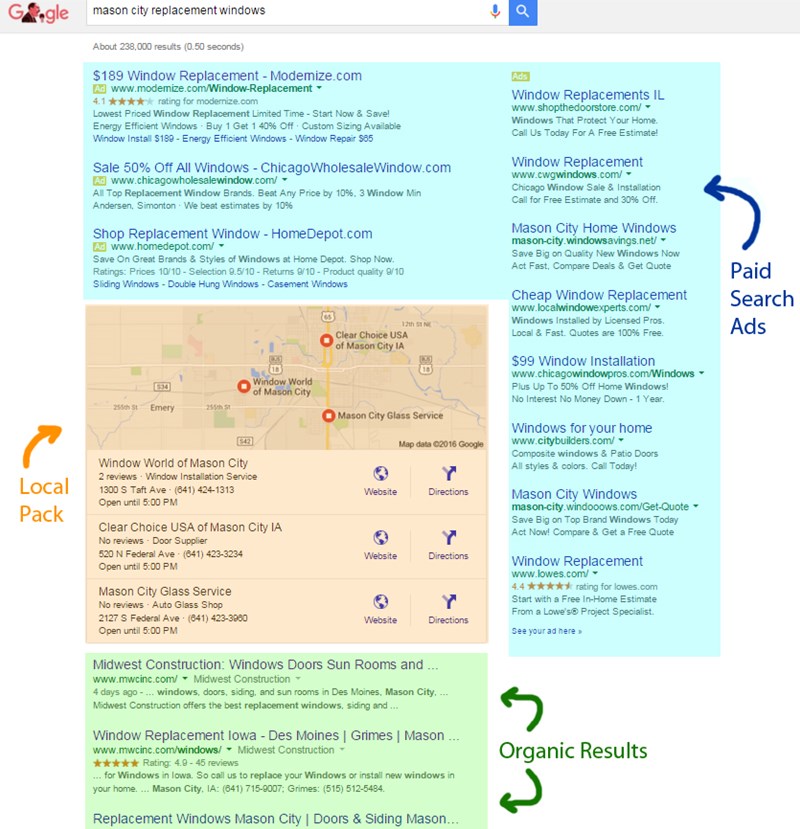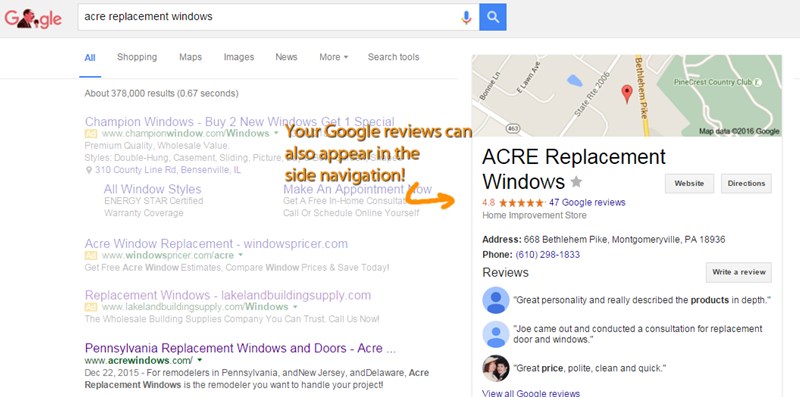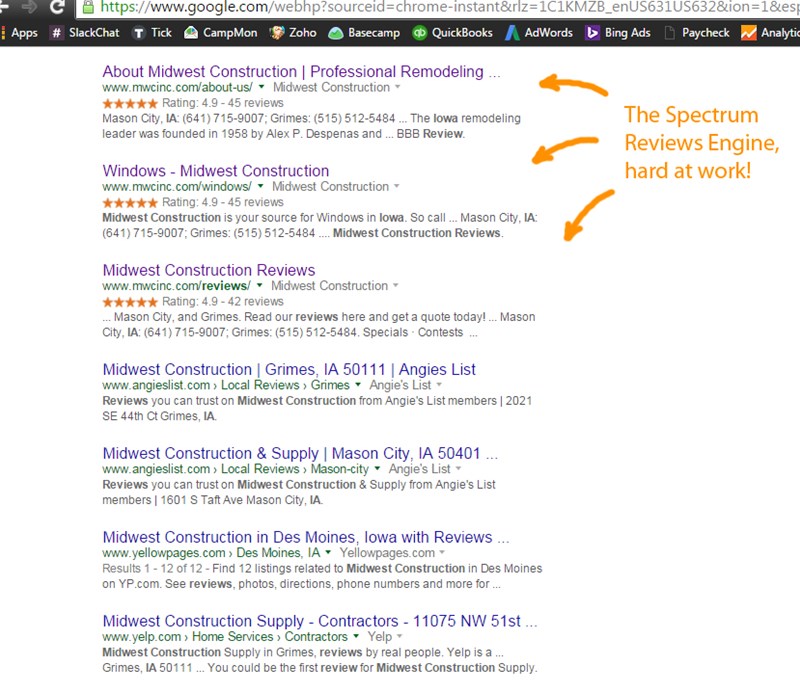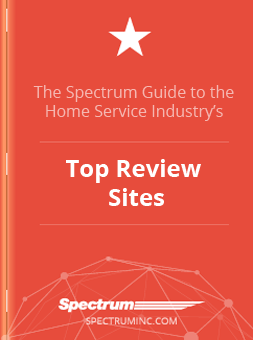Where Do Your Customer Reviews Live?

Here is a useful thought experiment for home services business owners: Google your business name. For me, that’s “Spectrum Communications Schaumburg.” See what your customers see when they find you online. If you’re investing in your website’s architecture and SEO, your homepage is hopefully showing up. You probably also see a handful of reviews and star-ratings.
So, how do you ensure that your business is putting its best foot forward in search? You will have to have a stellar site, but you will also need to think about the review sites that pop up alongside your webpage. The most prominent review sites vary by your industry. For remodeling companies, it tends to be Yelp, the Better Business Bureau, and Houzz. If you have reviews on your Facebook page, those may also appear as a star rating. Google Local reviews are attached to your local listing, so those will appear anywhere your local listing appears. Whew! That’s a ton of review sources.
With the dizzying array of review sources available to your potential customers, how do you take control of your online reputation and drive those customers to your business? The first step is to understand where those star-ratings are coming from, and what searches trigger them. Once you have that down, you will be able to leverage your online reputation to convert more web traffic into customers.

Google Local Reviews
The easiest reviews site to trigger is your Google Local listing. If you don’t have one, or aren’t directing your customers to review you there, you are missing out. These reviews show up in the local pack as well as in the navigation sidebar, depending on how your customers phrase their searches. These placements receive massive exposure, so time you invest into improving your local listing is time well spent. Also, Google Local is an arm of Google the search giant – so reviews are part of what determines how high your listing is in the search results.
In short, ignore your Google reviews at your own peril!

Google Loves Yelp – sort of…
Yelp is a tricky reviews partner. Their reviews filter and sales tactics often leave small business owners furious. Have a look at our Yelp Filter Guide to get the most out of time you spend improving your Yelp listing – but don’t rely too much on Yelp in your reputation management strategy.

On a related note, Google can’t appear to be playing favorites and displaying its own services over competitor services. Yelp has sued Google repeatedly over the issue, and you’ll notice that if any star-rating is going to appear Yelp is frequently in the mix. So, Yelp displays prominently in search results, both due to its popularity and due to Google not wanting to anger the Yelp legal department.
Realize this when you’re investing your time and energy into Yelp - What the filter allows one day, may be taken away the next day without so much as a warning.
A Third Way
Wouldn’t it be great if you could sidestep titanic Silicon Valley companies and take charge of your reputation management through your own web site? Well, you can’t just up and go head-to-head with Yelp or Google. With the right technology, though, you can slot your own legitimate reviews into the Google search results wherever your homepage would appear.

Here at Spectrum, we patented that technology in our own proprietary Reviews Engine. Home remodelers can seek out honest reviews from their happy customers, without having to worry about external companies filtering them or making shady sales offers to improve their star-ratings. Pretty cool, right? The Reviews Engine wraps your reviews into your organic rankings, showing customers that you are a reputable company while showing Google that you host the sort of content that searchers want to see.
So, there you have it! Now you better understand what drives your reviews presence in the Google search results. You can optimize on Google Local, you can haggle with Yelp, and when you’re ready to take your business to the next level, you can employ Spectrum technology to implement a comprehensive reputation management strategy. Any venues we’re missing here? Let us know in the comments!










